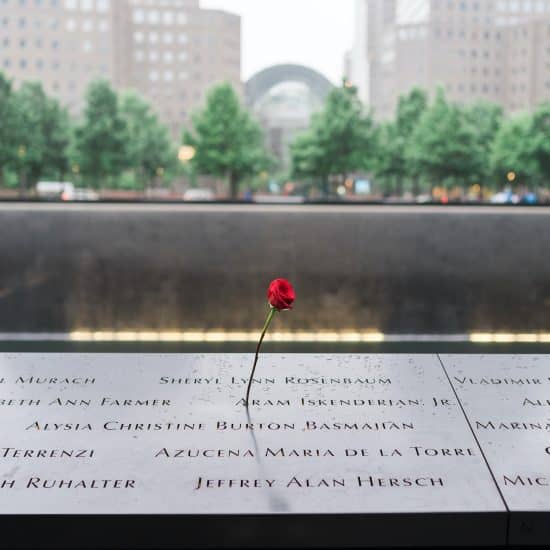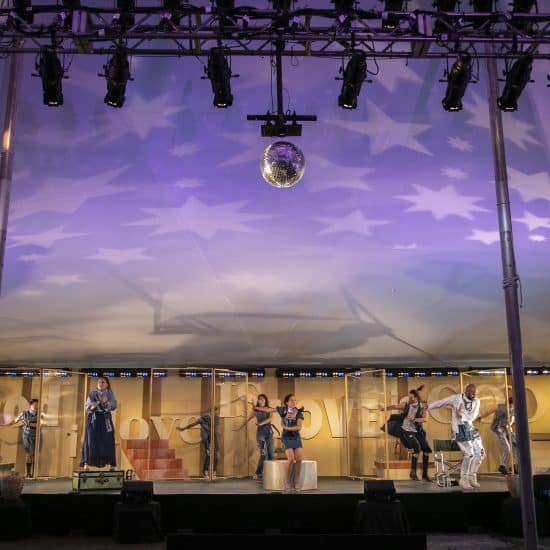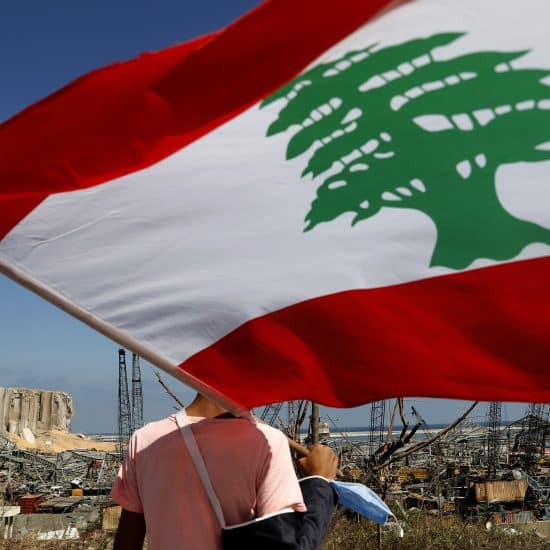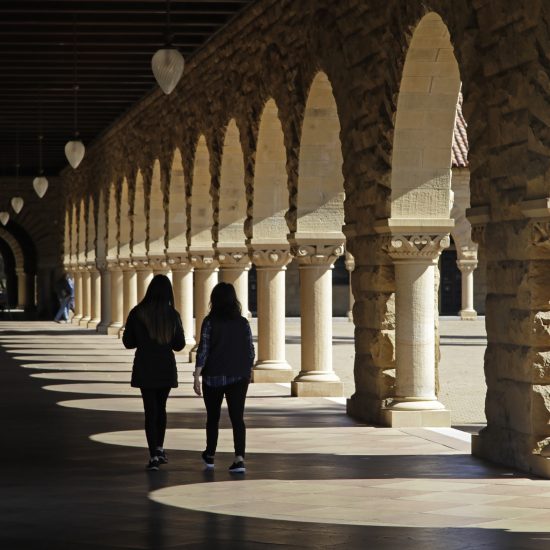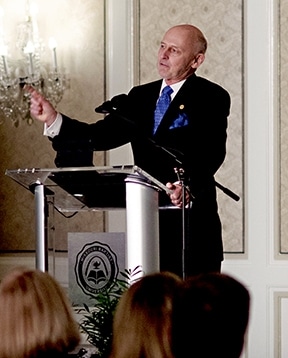
(St. Louis) — Students, staff and faculty, donors and other friends of Missouri Baptist University honored the school’s 50th anniversary with a celebration of its past and challenges for its future March 26 at the Ritz-Carlton Hotel in St. Louis.
“Tonight is an occasion for us to reminisce, to look at what we were and to evoke our past, but it is also a time to look to the future,” R. Alton Lacey, who has led the university for the last 20 of those years, told the ballroom audience.
Lacey recalled that in 1964, when then-Missouri Baptist College was established, the Beatles made their first appearance in the United States, the first Mustang rolled off the assembly line, “My Fair Lady” edged “Mary Poppins” for Best Picture and Sidney Poitier became the first African American to win an Oscar.
A postage stamp cost a nickel and a loaf of bread 20 cents. Smoking was determined to be hazardous to one’s health, President Johnson signed the Civil Rights Act into law and Nelson Mandela was sentenced to life in prison in South Africa.
America was still reeling from the assassination of President Kennedy and was rocked by civil unrest, anti-war protests, the rise of feminism, urban poverty and crime, student revolts, the sexual revolution and the cold war.
“It was the perfect time to start a college,” the president deadpanned.
In the early 1950s, “St. Louis Baptists were gripped by a vision for Christian higher education in this city,” he said.
“The Missouri Baptist Convention had shown only mild interest, partly because funding was an issue and the three other colleges did not relish the competition in one of their prime recruiting areas,” he explained.
“However, St. Louis Baptists were not to be denied,” he said.
Three faculty members set up shop at Tower Grove Baptist Church in St. Louis in 1957 and offered classes as an extension of Hannibal-LaGrange College, he said, and offered only religion courses. The next year, mathematics and English were added. One hundred sixty-eight students enrolled and took advantage of $10 per semester hour and total costs of less than $180.
With the blessing of the MBC, the school began as a stand-alone college in 1959. A board of trustees was appointed in 1963 with the promise of local Baptists to raise money and look for a site, Lacey said. The four-year college was chartered in 1964 but was not accredited for several more years.
Trustees bought a 63-acre site on which MBU is now located and began construction of a library, administrative-classroom building and a gym. In 1968, the new campus opened with 189 students.
It became Missouri Baptist College-St. Louis, but it shared a president with Hannibal-LaGrange, Lacey said. The next few years included successes and challenges such as a mounting deficit, pressure from faculty and alumni from HLG to separate the schools and “declining ability and enthusiasm from statewide Baptists to support the struggling college,” he added.
Trustees voted not to open the school in the fall of 1974, and shutdown procedures commenced, he said.
But a local pastor, Ed Hewlett of Southwest Baptist Church met over breakfast with the college president in August.
“He said simply that the Lord had laid it on him to see that the college did not close,” Lacey said.
Then Hewlett met with a group of business leaders, trustees and pastors for prayer and to devise a plan for re-opening the college.
“All St. Louis pastors and churches were contacted, students were called to see if they would re-enroll and the budget was adjusted to take all this into account,” Lacey said. “Everyone was encouraged to pray, plan and promote expectantly.”
By late August, Hewlett and the ad hoc committee announced the miracle students, faculty and staff had prayed for: Cash and pledges for immediate payment totaled $119,000 and additional pledges were $150,000. Trustees voted to re-open the school.
On Sept. 10, 1974, it opened with 300 students and 30 faculty and staff. Supporters gave or loaned money interest-free to meet continuing needs. The college was forced to sell 35 acres of its property to a developer. While MBU later bought back 18 acres, the remainder was purchased by a buyer who then donated it to the Mormon Church for the purpose of building a temple.
Why has the university not only persevered but flourished?
Lacey believes it is because certain qualities have remained constant: “that we should be academically second to none, have a strong Christian faculty, open admissions, and be free and responsible in seeking truth. Those themes have been echoed by every president and every board of trustees since the founders established them,” he said.
The “school benefited from a heritage of believers who simply refused to give up on this place, no matter what the challenges,” he said.

